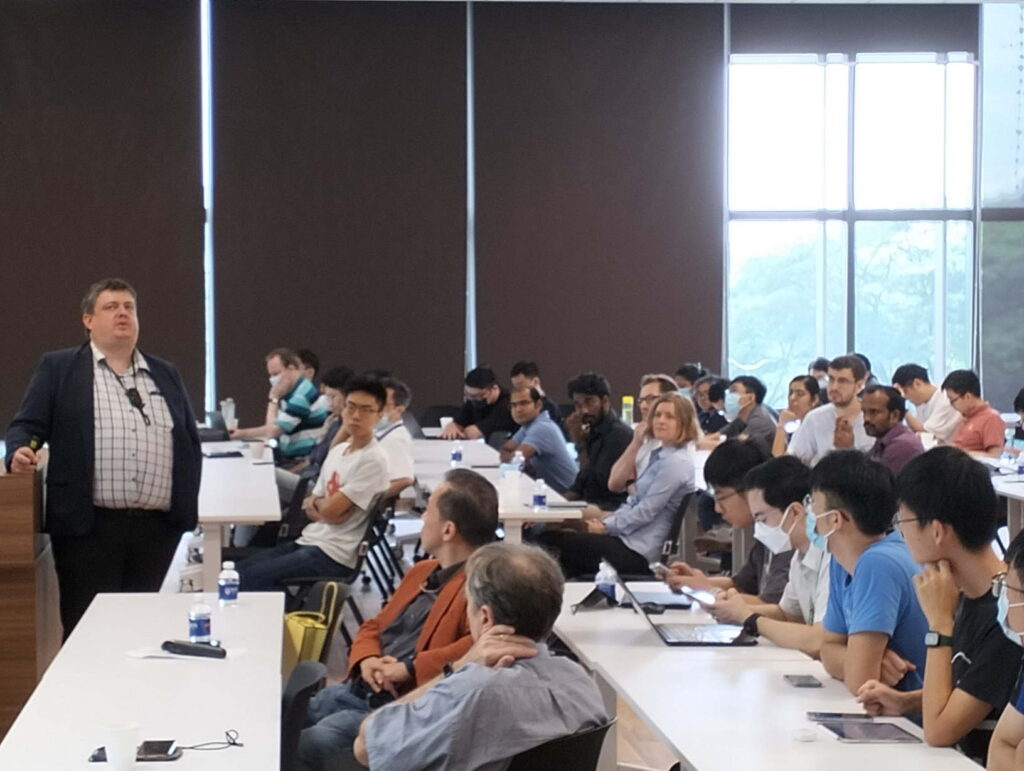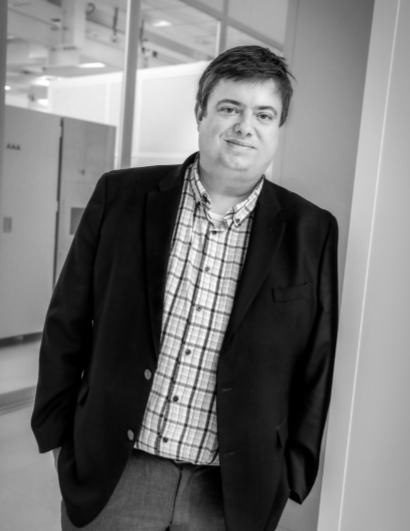Post Event Brief
On Nov 18th, SHINE hosted the Quantum Science Talk given by Dr.Kristiaan De Greve, Scientific Director and Program Director of Quantum Computing of imec, Belgium. Held at the campus of College of Design and Engineering, the response to the talk was overwhelming with close to 80 turn-up. The talk commenced at 10:30 am with Prof Aaron Thean, Director of SHINE centre, kicking things off.
During the talk, Dr Kristiaan spoke about factory mean and novelty of some activities of phenomena of qubit platform as well as the recent collaboration with NUS on photonics communication. He further shared about spin qubit superconducting and advantages of advanced manufacturing technology.

About the Speaker

Dr. Kristiaan De Greve is Scientific Director and Program Director of Quantum Computing at imec. He is also a part-time professor at KU Leuven (ESAT-MNS) and visiting researcher at Harvard University. He obtained his engineering degree (Burg. Ir. Elektrotechniek, summa cum laude with congratulations of the board of examiners, valedictorian) at KULeuven – ESAT, with research on spintronics and nanomechanical systems performed at imec and Caltech. He graduated from Stanford University with a Ph.D. in Electrical Engineering in 2012 where he was a Stanford Graduate Fellow working with Yoshi Yamamoto. He was awarded the Springer thesis prize for his Ph.D. research.
He joined Harvard University’s physics department as a fellow from 2012 until 2019, working with Misha Lukin, Amir Yacoby, Philip Kim, and Hongkun Park, after which he moved to imec. He holds additional degrees in economics and physics from Stanford and a mini-MBA from Harvard Business School. He’s the recipient of several awards and prizes and has authored multiple patents and over 30 papers in journals like Nature, Science, Nature Physics, Nature Photonics, Nature Nanotechnology and etc., which have been highly cited. His scientific interests span a wide range from advanced materials research, quantum mechanics, photonics, cryptography, and information science to novel, disruptive computing paradigms and artificial intelligence.
- Home
- Quantum Science Talk
Singapore Hybrid-Integrated Next-Generation μ-Electronics (SHINE) Centre
- Block E6, #E6-5-3, 5 Engineering Drive 1, Singapore 117608
- +65 6601 8522
- shine@nus.edu.sg

